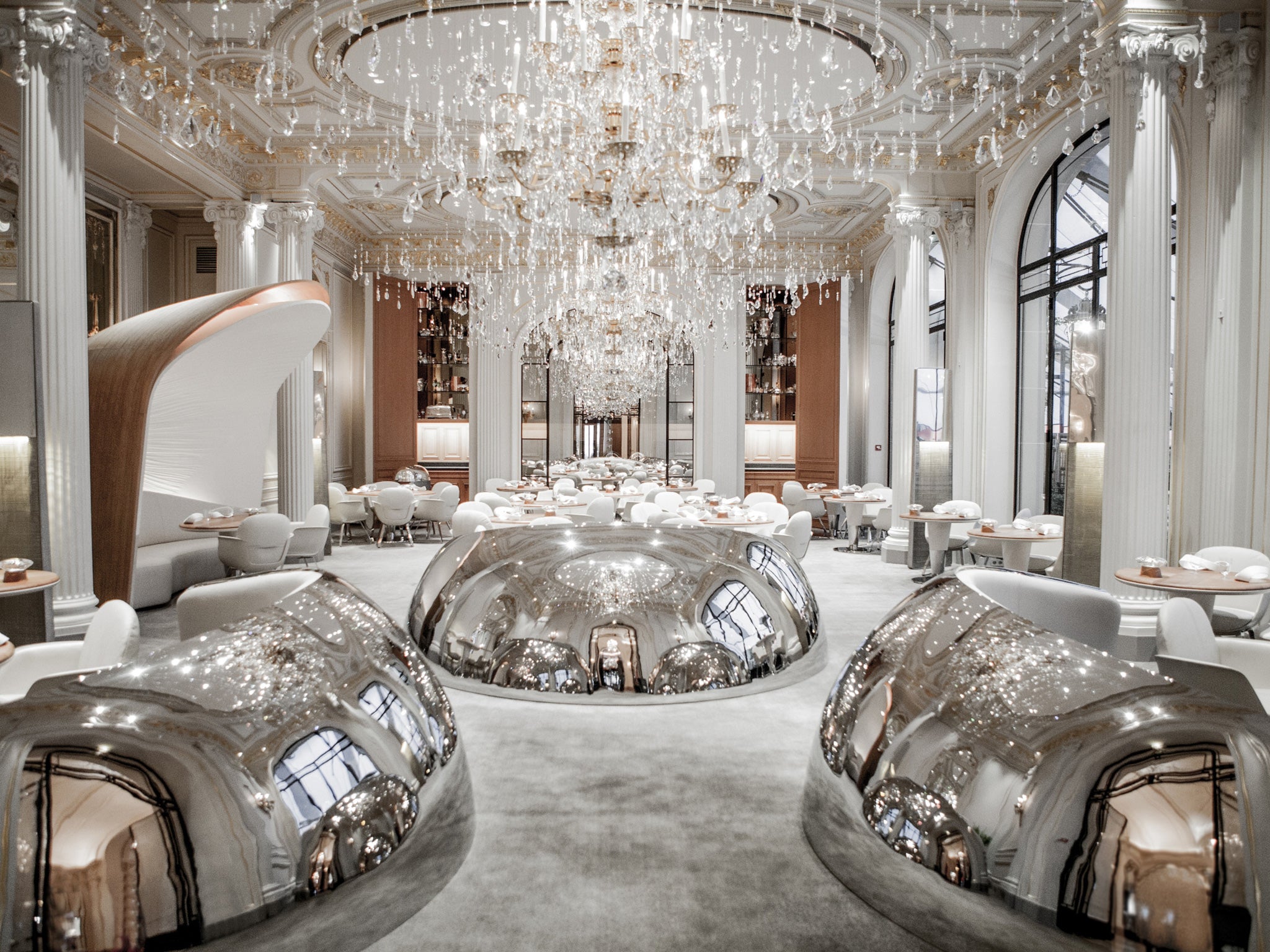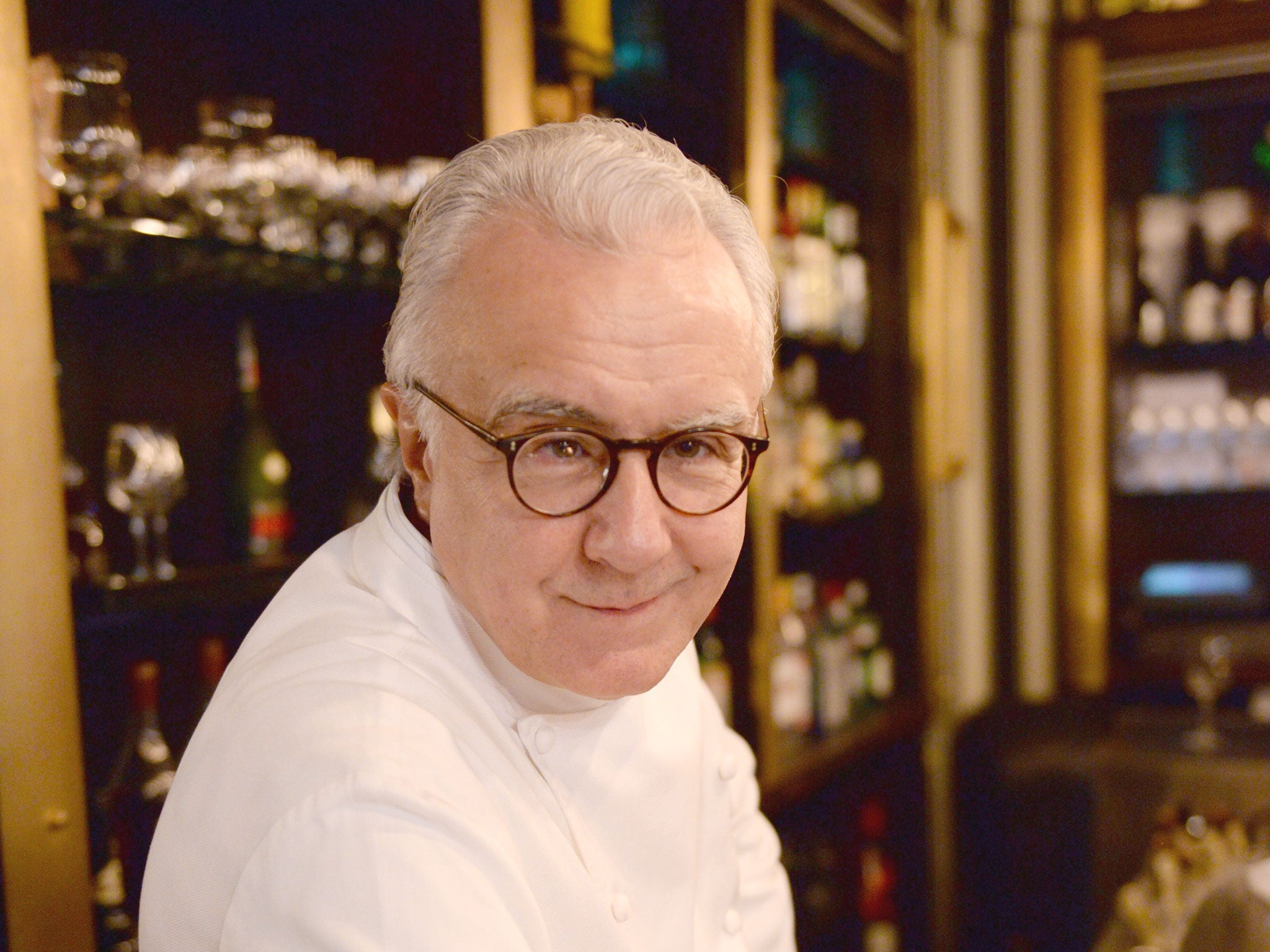Chef Alain Ducasse has removed all meat from the menu at his eponymous Paris restaurant
The menu at the Plaza Athénée is confined to fish, shellfish, veg and grain

Your support helps us to tell the story
This election is still a dead heat, according to most polls. In a fight with such wafer-thin margins, we need reporters on the ground talking to the people Trump and Harris are courting. Your support allows us to keep sending journalists to the story.
The Independent is trusted by 27 million Americans from across the entire political spectrum every month. Unlike many other quality news outlets, we choose not to lock you out of our reporting and analysis with paywalls. But quality journalism must still be paid for.
Help us keep bring these critical stories to light. Your support makes all the difference.
Alain Ducasse is to French cuisine what Ronseal is to fence paint. No one can really match Alain, he of 18 Michelin stars. He is the rum in the rum baba, the foie gras spread thick, the very essence of Gallic culinary joie de vivre.
So then, what's this? The most French of French chefs has removed all meat from the menu at his eponymous restaurant in Paris's most storied hotel, the Plaza Athénée?
Guests passing through the vast glass doors into the dining room, with its ceiling that seems to rain crystal, will find a fine-dining restaurant unlike any of the others Ducasse has in the city. There are, as you may be able to see in the picture below, no tablecloths, and the dining room staff are not trussed up in white tie. These things themselves are worthy of comment when it comes to Ducasse's usually baroquely formal joints. But what is more noteworthy is that the menu is confined to fish, shellfish, veg and grain.
Why this is worthy of note is that Ducasse is usually a great one for French and Monegasque dishes, which involve lots of meat and poultry. Years ago, I ate in his three-Michelin-star restaurant in the Le Meurice hotel, also in Paris, and had the full shebang of foie gras, guinea fowl, pigeon and all the rest.
Not at the Athénée, though. "I am convinced that the time has come to give an interpretation of haute cuisine to fish, vegetables and cereal. In my opinion, this is not a constraint. It is a world of new flavours," Ducasse says.
The menu has lots of the upscale restaurant war horses such as "refreshed Brittany langoustines", Erquy sea scallops, sole from the Groix islands and blue lobster – but also green lentils, Anjou quinoa, winter vegetables and dainty smoked cabbage with preserved clementines.

The reason for reworking the menu at the hotel is two-fold. As Ducasse says, "There is an absolute necessity to go towards a better way of eating, in harmony with nature; healthier and more environmentally friendly." And it seems to be working. Last week, it was full right up to the chandeliers.
Now, you may be thinking, who cares? What does some blisteringly expensive Parisian restaurant have to do with me? Well, the thing is, when Ducasse sneezes, everyone else catches the flu. If the restaurant can succeed in a city in which steak frites and rotis de boeuf have almost the status of beatific relics, then it can happen here. And it must happen.
Mad cows, E coli, pink slime – most of the recent food scandals pivot on meat and poultry. The system, such as it is, is broken. Quite simply, we eat far too much low-quality meat and poultry; and not only is it bad for us, it's bad for the planet. It takes between three and 20 acres to raise a cow on grass and there are 10 million of them.
A report in the journal Environmental Research Letters suggest that if we don't reduce our consumption of meat by 50 per cent in the next 4o years, we will face an environmental catastrophe. The problem is, lots of us think that a meal without some flesh in it is no meal at all. That has to change.
Ducasse has done something brave and clever. We all ought to take note.
Join our commenting forum
Join thought-provoking conversations, follow other Independent readers and see their replies
Comments